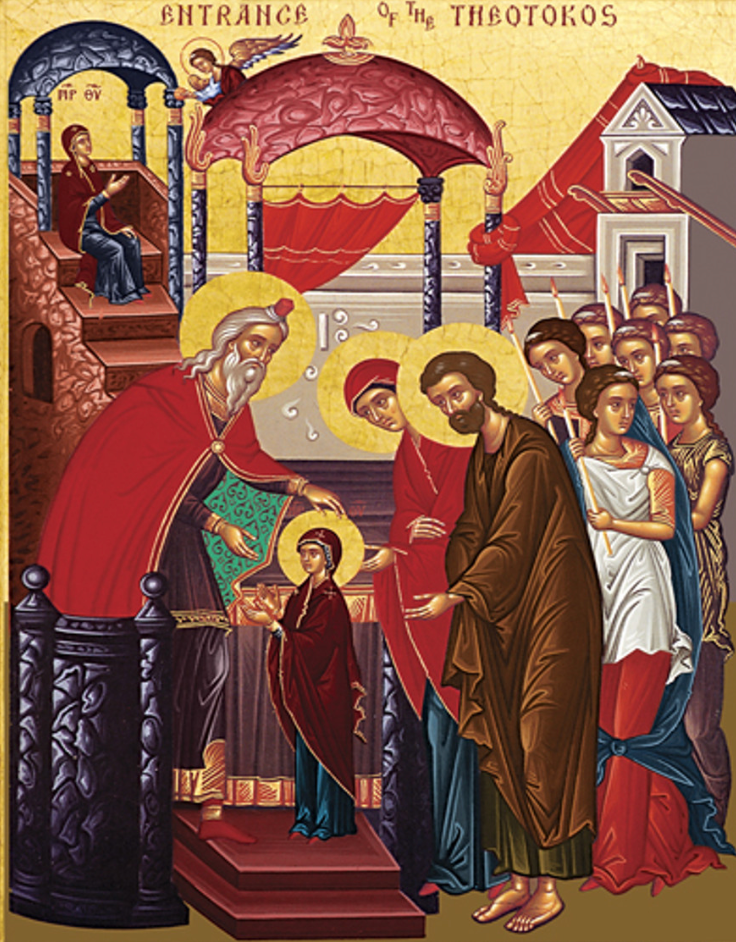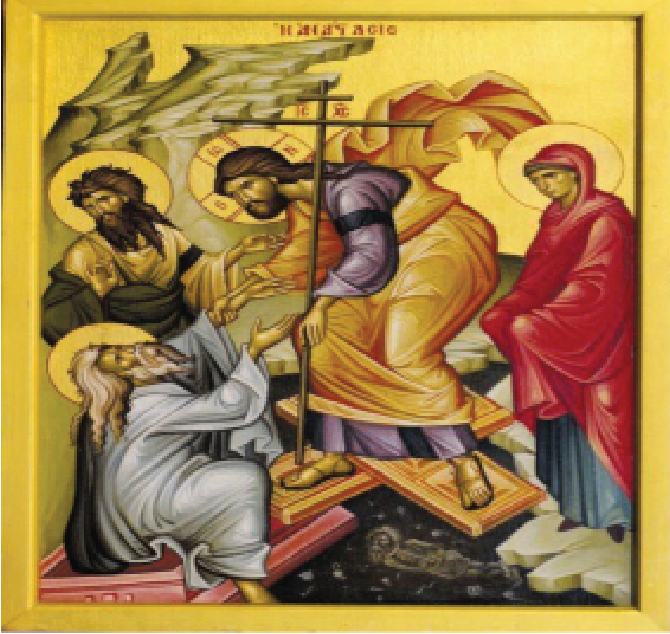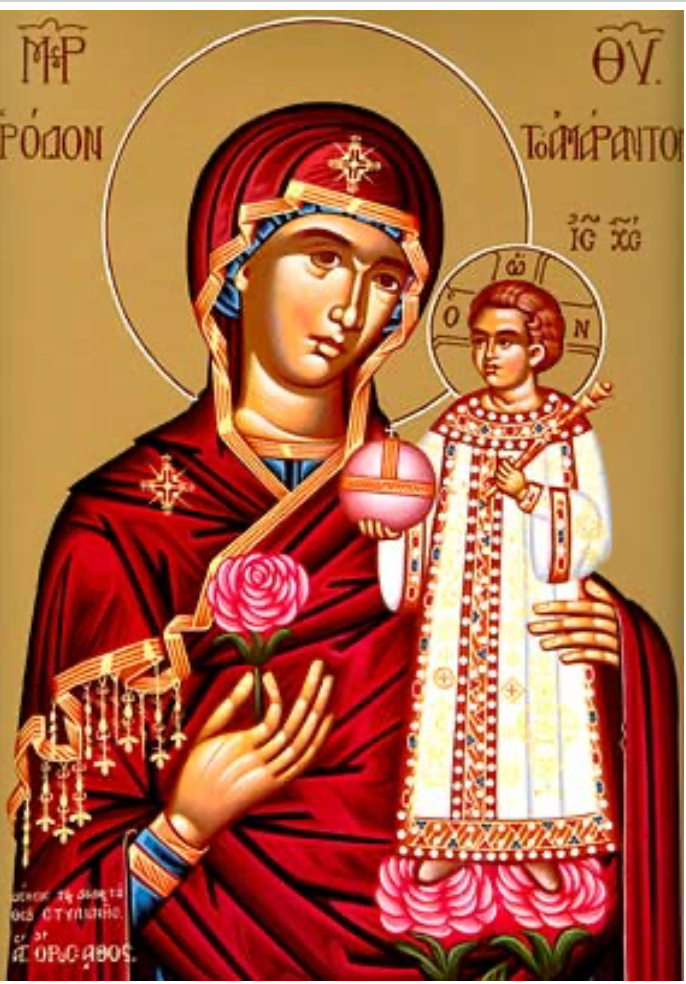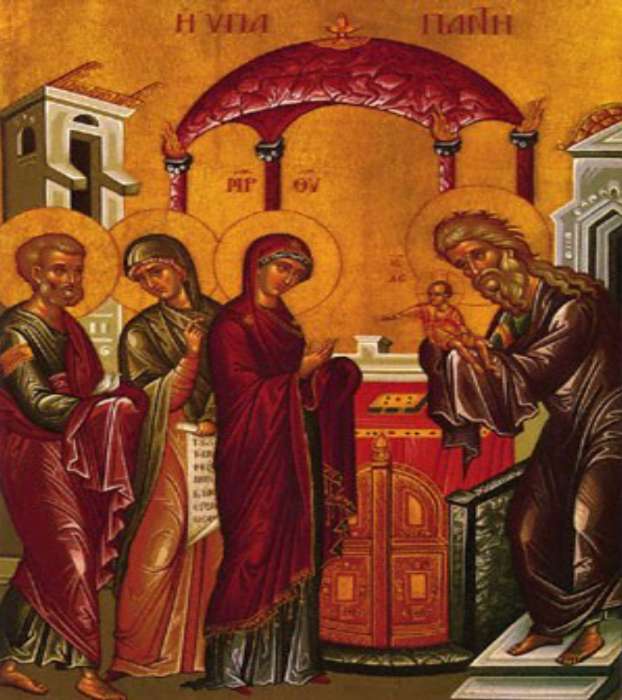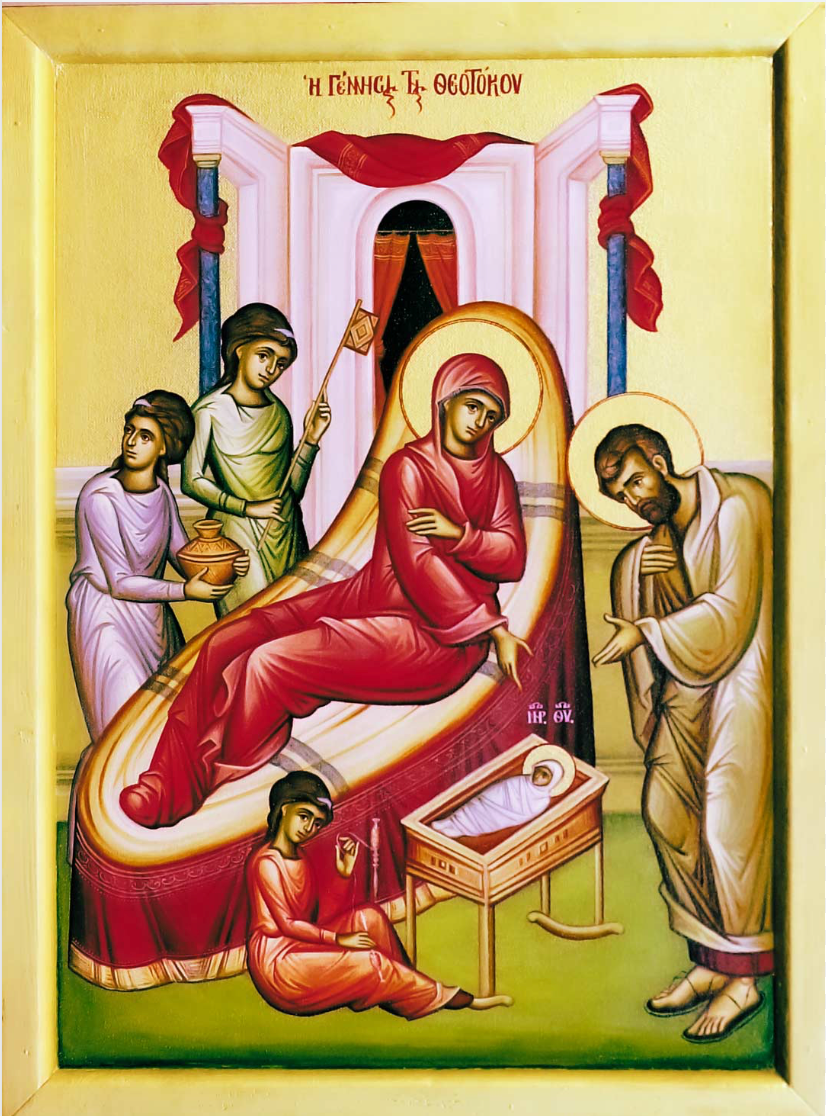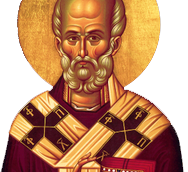Saints Demetrios and Nestor
Demetrios was a native of the city of Thessaloniki
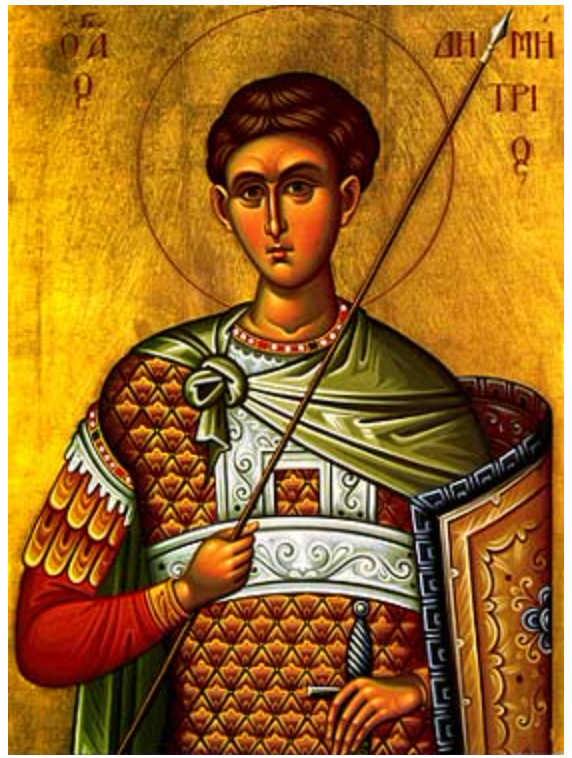
The names of Demetrios and Nestor are so linked in the annals of Christianity that it would be almost sacrilegious to mention one without the other in any account of the story of these two beloved men of God, who are now as inseparable in church archives as they were in life. It was their combined defiance of early fourth-century tyranny which brought them to a martyrdom, which individually they may not have attained, but which places them on equal footing in the final judgement. While Demetrios was the better known of the two, it was the quiet courage of his friend, Nestor, added to the complete piety of Demetrios, that assured their immortality.
Demetrios was a native of the city of Thessalonike, the city founded by Alexander the Great, who named it for a sister very dear to him. In the tradition of the great thinkers of ancient Greece, Demetrios honed his keen oratorical power in the public forum, where the debates of the great minds of the day drew the spirited Christians as much as the gladiatorial games attracted the pagans. As the second leading city of the empire, Thessalonike had a reputation for providing the brightest intellectuals on the public platform and the most fearsome gladiators in the arena, strange bedfellows, indeed, and oddly enough, in both of which the power of Demetrios was to find expression.
Demetrios was in the military service as well as a devout Christian, a study in contrast that was countenanced in Thessalonike, but when it came to the attention of the Emperor Maximianus, who had come for an annual exhibition of gladiatorial prowess in the arena, the dual nature met with royal displeasure. For his part in the Christian cause, Demetrios was stripped of his military rank and cast into prison to await an uncertain fate. It was at this point that the friendship of Nestor came to light. At great personal risk Nestor visited his friend in prison regularly and sought to intercede in his behalf, a move which availed him little but the aroused suspicions of those who surrounded the emperor. This provided the setting for one of the finest displays of the power of God through the friendship of two gallant Christians.
It seems that one of the favorites of the arena, admired particularly by the emperor, was a giant man named Lyaios, a seven foot brute who destroyed every hapless gladiator he ever faced, and for whom the pagans sought an opponent who at least had the courage to walk up to Lyaios and give a good account of himself before succombing to the inevitable.
It was during one of his visits that Nestor heard from Demetrios that the power of the Lord could be transmitted through him to any man and make him invincible against any foe in the arena. The youthful Nestor, with the spirit of the true believer welling within him, agreed to hurl a challenge to the best of the gladiators with a declaration that the power of God would,thanks to his friend, Demetrios, prevail against all comers. Buoyed by the assurance of Demetrios, he stepped into the arena and shouted his defiance in the name of the Lord.
The pagan crowd, thinking this some practical joke, roared with laughter, but when Nestor strode to the royal box where Maximinus had looked on with amusement and heard the young man invoke the name of Demetrios and the awesome power of God, his smile turned to a snarl and the audience joined him in derison, whereupon the scowling Lyaios was brought into the pit. The crowed settled back to witness the anticipated cat and mouse match, which the giant would conclude when it pleased him. But they were brought to their feet in disbelief when the supposed victim withstood the withering attack of the gladiator who had never tasted defeat, and, in due course, turned the tables and soundly defeated the greatest of the gladiators. Nestor scorned the thumbs down signal of the mob who now screamed for death, and the young Christian walked away form his prostrated foe.
The frustrated emperor now ordered the deaths of both Christian companions, and they were executed without delay by the Roman soldiers. Not all who left the arena that day remained pagans.
Taken from “Orthodox Saints” by Fr. George Poulos
